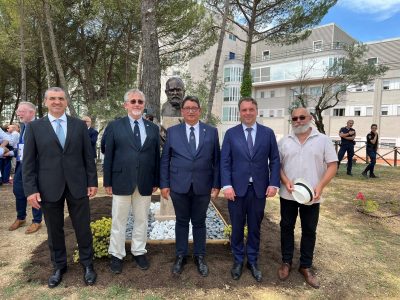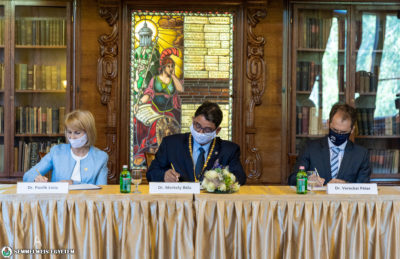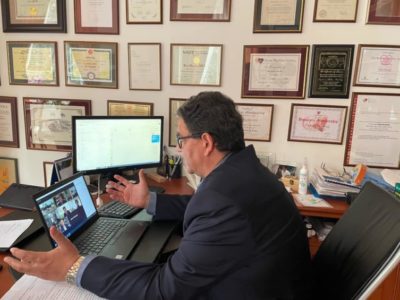Wishing to establish a partnership with Semmelweis University, a delegation from the Hong Kong University of Science and Technology (HKUST) visited the university’s leadership. The delegation, including the president and vice presidents were received by Dr. Mária Judit Molnár, Vice Rector for Sientific Affairs, Dr. Romána Zelkó, Dean of the Faculty of Pharmaceutical Sciences, Dr. Lilla Farkas, Director of the Innovation Centre and Dr. Marcel Pop, Director of International Relations. Semmelweis University and its most important research areas were introduced by Dr. Marcel Pop.
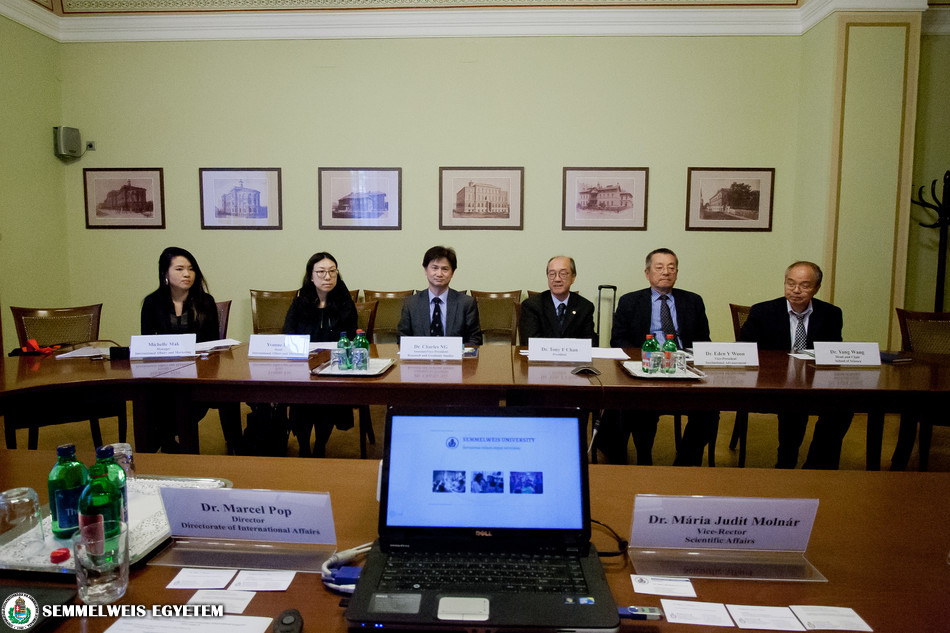 Hong Kong University of Science and Technology was founded in 1991 and it does not have faculties related to healthcare or medicine, however some areas of research are connected to medical sciences. Some of these fields are the design and development of big data, scientific databases, robotics, autonomous systems, biosensors and imaging systems. The School of Humanities and Social Sciences conduct research related to healthcare data collection and organisation, mainly in the field of ageing. The leaders of HKUST are also interested in Alzheimer’s disease research and the establishment of a centre for Traditional Chinese Medicine is being considered.
Hong Kong University of Science and Technology was founded in 1991 and it does not have faculties related to healthcare or medicine, however some areas of research are connected to medical sciences. Some of these fields are the design and development of big data, scientific databases, robotics, autonomous systems, biosensors and imaging systems. The School of Humanities and Social Sciences conduct research related to healthcare data collection and organisation, mainly in the field of ageing. The leaders of HKUST are also interested in Alzheimer’s disease research and the establishment of a centre for Traditional Chinese Medicine is being considered.
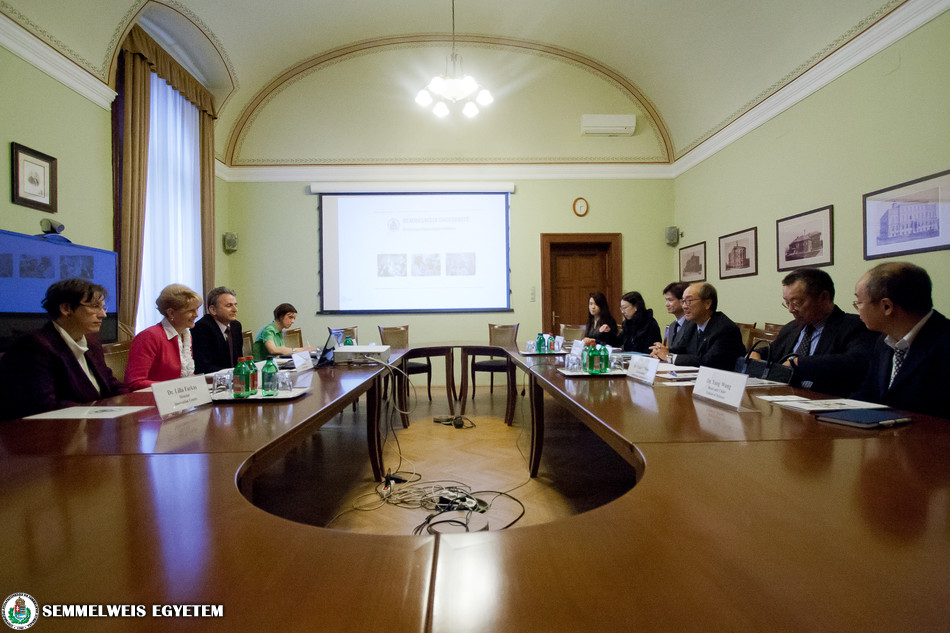 According to Dr. Mária Judit Molnár, Semmelweis University could be involved in several research activities conducted at the university in Hong Kong. Big data is an essential part of healthcare; therefore Semmelweis University tries to keep data up-to date by introducing the latest applications. She also referred to the establishment of the Bionic Innovation Centre in collaboration with Pázmány Péter Catholic University, which aims at the promotion of interdisciplinary research. Semmelweis University gives priority to research in the field of neurosciences, primarily to brain research, ageing factors, biomarkers and imaging.
According to Dr. Mária Judit Molnár, Semmelweis University could be involved in several research activities conducted at the university in Hong Kong. Big data is an essential part of healthcare; therefore Semmelweis University tries to keep data up-to date by introducing the latest applications. She also referred to the establishment of the Bionic Innovation Centre in collaboration with Pázmány Péter Catholic University, which aims at the promotion of interdisciplinary research. Semmelweis University gives priority to research in the field of neurosciences, primarily to brain research, ageing factors, biomarkers and imaging.
Summarizing the mutual interests of Semmelweis University and HKUST, Tony F Chan, Rector identified Traditional Chinese Medicine, neurosciences, nanophysics, big data and robotics as possible areas of cooperation. He suggested that both universities should appoint specialists in all the potential fields of cooperation to prepare the professional prerequisites in order to launch a successful collaboration.
Ágnes Raubinek, Directorate of International Relations
Pálma Dobozi
Photo: Attila Kovács, Semmelweis University
Translated by: Ágnes Raubinek
